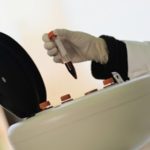
Due to the nature of the cardiac surgery, the surgeon needs to work on a still heart, and it is necessary to temporarily replace the patient’s circulatory and respiratory function. It is the responsibility of the perfusionist, a specialized healthcare professional, to assume the function of the heart and/or lungs during these medical procedures.
A perfusionist operates a heart-lung machine, which is an artificial blood pump, which propels oxygenated blood to the patient’s tissues while the surgeon operates on the heart. The perfusionist manages the physiological and metabolic demands of the patient while the cardiac surgeon operates on the heart. It is also the perfusionist’s responsibility to deliver the drug that stops the heart.
A perfusionist generally spends 90% of his or her time in the OR suite for cardiac cases, but now may also find their responsibilities extending to areas such as the cardiovascular intensive care unit (CIVICU) and catheterization laboratory.
The perfusionist measures various blood and other parameters to identify appropriate mechanical, pharmacological and thermal manipulation to maintain a physiological state. To preform these tasks, a perfusionist must have a thorough understanding of both the respiratory and circulatory system and be able to operate complex equipment.
The perfusionist must also be knowledgeable about the equipment available to perform extracorporeal circulation function and is responsible, in consultation with the surgeon, for selecting the appropriate equipment and techniques to be used.
Working Conditions
As part of the surgical team, the perfusionist is expected to be up to date with the patient’s medical history and current health status. Before the surgery begins, the perfusionist and the surgeon will determine which circulation equipment and techniques will be used.
In the operating room, the perfusionist prepares the heart-lung machine and other critical equipment necessary for the particular operation and verifies its functionality. Once the patient is connected to the machine, the perfusionist continuously monitors patient status to control the rate of blood circulation, hemodynamics, temperature, blood composition and other monitoring devices.
The primary surgeon, working with the anesthesiology team, directs any pharmacological and blood transfusion intervention carried out by the perfusionist. The perfusionist must remain in close communication with the surgical team to inform them of the patient’s condition throughout the surgery to ensure a successful outcome.
Medical centers or third-party perfusion companies most often employ perfusionists. Typically, perfusionists are scheduled to work a regular 40-hour week, but also must be on call on some nights, weekends and holidays. Depending on the program, call responsibilities can be rigorous. In busier facilities that perform a large number of open heart surgeries, perfusionists may work in shifts to ensure that a trained perfusionist is available 24 hours a day.
Outside of clinical work, experienced perfusionists can go on to teach in certification programs, conduct research or work for perfusion equipment manufacturers.
Salary Range and Outlook
Certified clinical perfusionists with experience earn an average of $110,00 per year. Salaries can range from $65,000 to $135,000.
The American Society for Extracorporeal Technology expects hospitals to hire more perfusionists in coming years to compensate for the aging American population. Cardiovascular disease is more common in older people, so more patients may need open heart surgery.
Perfusion is also being increasingly incorporated into more types of surgeries involving the correction of congenital heart defects, treatment of heart disease, chemotherapy treatments and emergency trauma cases.
As they become more involved outside of traditional cardiac surgery, there is likely to be more need for perfusionists.
Academic Requirements
Perfusionists typically complete a four-year degree, with courses in biology, chemistry, anatomy and physiology, as well as additional specialized training to satisfy the requirements of certification. A background in science is not required to become a perfusionist.
Accredited perfusion programs offer master’s or bachelor’s degrees and some programs offer a certificate in clinical perfusion. The American Board of Cardiovascular Perfusion administers the certified clinical perfusionist (CCP) credential, which is required for all practicing perfusionists.
CCP applicants complete an accredited training program in cardiovascular perfusion and perform a minimum of 75 cases as the primary perfusionist during training to sit for the certification exam. Recertification, including continuing education and work experience, is required on an annual basis.
Since perfusionists work in the operating room and use life-sustaining equipment, they must be able to handle acute stress, perform under severe pressure and pay great attention to detail. Some surgeries can go on for many hours, requiring a high level of metal and physical endurance.
Perfusionists also must keep pace with newest technological changes and continually upgrade their skills and adapt to the latest developments in the profession.
